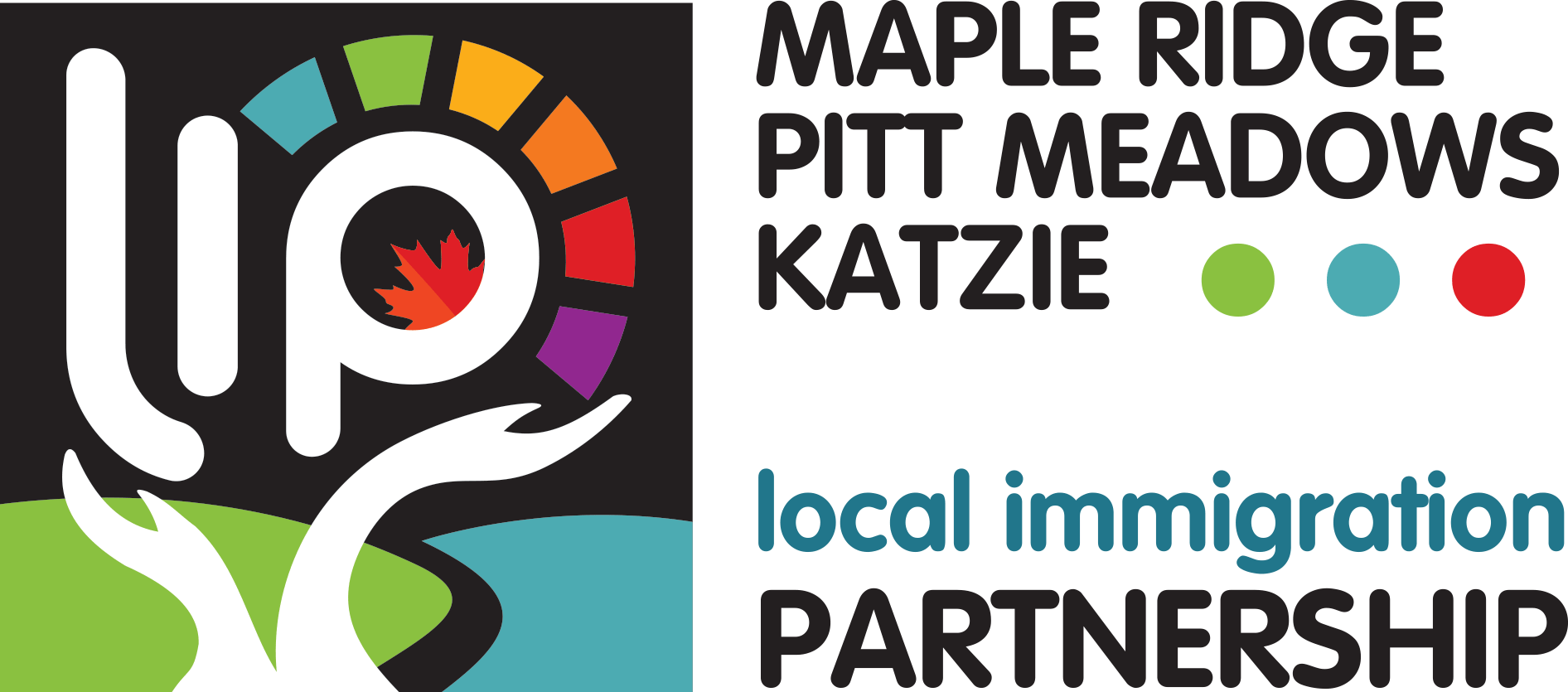Our Strategic Priorities and Goals
Maple Ridge, Pitt Meadows, Katzie LIP are currently focused on these priorities below.
Strategic Priorities
Comprehensive research and community consultation were conducted to identify these priorities. A key source of our direction came from the research conducted by the Social Planning and Research Council of BC (SPARC BC). To read the report, go to Final Report.
The LIP will review and refresh its priorities in 2023-2024 to ensure we meet the needs of the community.
The following are the priorities we are currently focused on:
- Increase Access to Information and Services.
- Support Newcomer Employment and Entrepreneurship.
- Promote Social Connection and Inclusion.
Priority 1: Increasing Access to Information and Services
Many newcomers face barriers to accessing services. Lack of information, language, transportation, governmental bureaucracy, visa eligibility, and child-minding services are major barriers for immigrants. When newcomers cannot access vital services and information, their physical, social, or financial needs may go unmet. This adds stress to the already difficult process of settling in a new country.
Our key actions to increase access to key information and services include:
- Continue to strengthen the LIPs as a forum for information-sharing, joint outreach, and collaboration to ensure newcomers are connected to community services.
- Explore the re-establishment of a central Multi-Cultural Hub where newcomers can learn about and connect with local services and programs.
- Work to routinely make important information about programs, services, community events, and bureaucratic processes available in languages other than English wherever possible.




Priority 2: Supporting Newcomer Employment and Entrepreneurship
Finding or maintaining work is the most common challenge for immigrants reported by Newcomer & Immigrant Survey respondents. Despite high levels of educational attainment, newcomers are often forced to work “survival jobs” that do not use their skills and knowledge. As a result, immigrants, recent immigrants, and non-permanent residents are all more likely to be low-income than non-immigrants. Overall, 44% of all recent immigrants in Maple Ridge and 57% in Pitt Meadows had a bachelor’s degree or higher. 55% of respondents to the Newcomer & Immigrant Survey had experience running their own business. Supporting newcomers to contribute to the labour market benefits not only them but also the broader economy and society.
Key actions to support newcomer employment and entrepreneurship include:
- Work to further promote existing employment services to newcomers (i.e., through WorkBC, ISS of BC, or Douglas College’s Career Pathways for Skilled Immigrants).
- Partner with local employers to address the lack of recognition of foreign experience and credentials and to explore the creation of professional mentorship programs.
- Work with the City to make it easier for new entrepreneurs, including Newcomers to navigate City permit and approval processes.
Priority 3: Promoting Social Connection and Inclusion
When Newcomers come to Canada, they leave behind friends and family in their home countries. Newcomers must overcome language, transportation, and other barriers to build social connections in order to forge social connections. Youth, seniors, and mothers with young children may face additional barriers to social connection and inclusion. As a result, many recent immigrants experience loneliness and isolation, which can have serious repercussions for their mental well-being. At the heart of successful immigration is making meaningful social connections and feeling like one belongs in the community.
Our key actions to promote social connection and inclusion include:
- Explore the designation of centralized meeting places where newcomers can gather on a regular basis (e.g., for a multi-cultural potluck).
- Prioritize cultural celebrations and community gatherings when it is safe to resume in-person activities.
- Explore meaningful volunteer opportunities for newcomers, including exploring the creation of Parent Ambassador and Senior Ambassador programs.


 Close
Close






